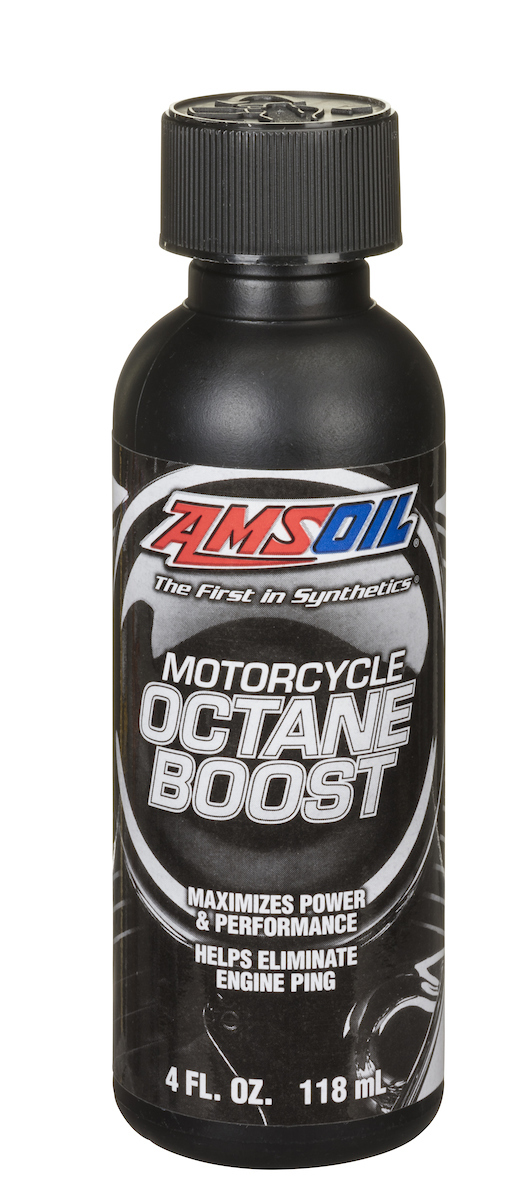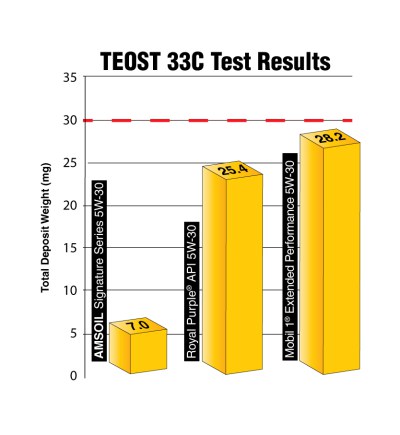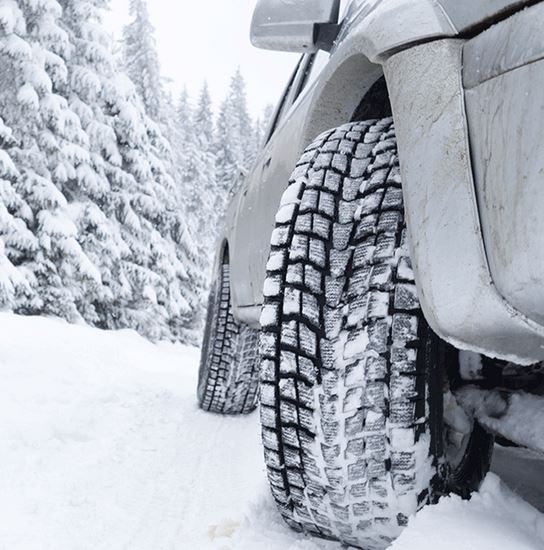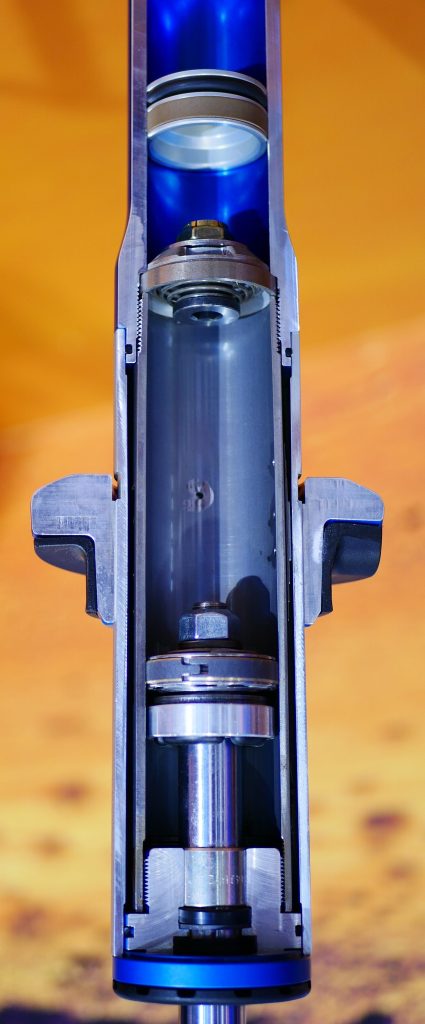How To Fix Motorcycle Engine Pre-Detonation
Your bike can automatically detune its engine, but there’s an easy fix.

Many modern motorcycles are designed to compensate for low-octane gasoline in an attempt to prevent motorcycle engine knocking. Unfortunately, the technology involved may also cause reduced performance, rough idle or lack of throttle response, making for a less than stellar ride experience. Fortunately, we can help you understand the root cause of this problem, and offer an inexpensive, quick and easy solution.
What is engine knocking?
Engine knock or pre-detonation is caused by an improper detonation within the engine, which happens when fuel ignites outside of a timed ignition from the spark plug. In the race to improve fuel economy, modern high-performance engines have increased compression ratios, which also inherently increases the chance of pre-ignition detonation.
Octane measures gasoline performance against pre-ignition, detonation and the resulting engine knocking or pinging. The three most common octane ratings are:
- Anti-Knock Index (AKI)
The rating typically displayed on North American gas station pumps as the average of the fuel’s RON and MON octane ratings (R+M)/2. - Research Octane Number (RON)
This rating is determined by testing fuel using a variable compression ratio under controlled conditions and is the most common industry rating worldwide. When comparing octane ratings, RON is typically higher than the AKI number, so an 87-octane AKI fuel at a typical gas station typically has a RON of 91-92. AMSOIL uses RON when conducting product validation and performance testing. - Motor Octane Number (MON)
MON differs from RON testing by using a preheated fuel mixture, variable ignition timing and a higher engine speed to increase ignition stresses on the fuel. Though the tests are unrelated, MON results are typically 8 to 12 octane lower than RON.
Low-octane gasoline is more susceptible to uncontrolled and early ignition in the combustion chamber, so the higher the octane, the more compression the fuel can withstand before igniting. Pre-ignition robs the engine of power, can cause a noticeable knocking or pinging sound, and if left unchecked, can even cause catastrophic piston or cylinder damage.
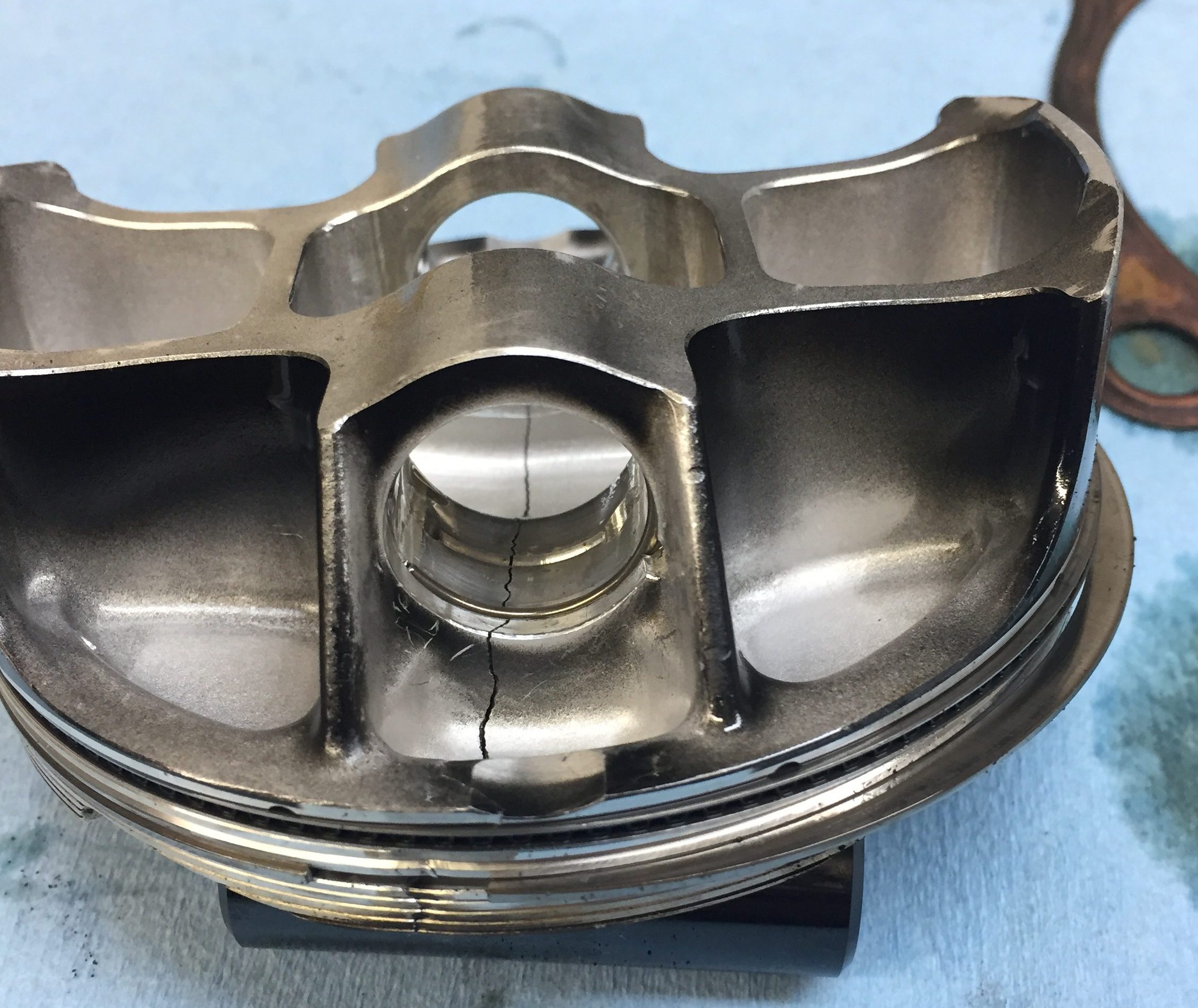
High stress combined with lightweight design caused this dirt bike piston to fail. Dude was in first place so missed out on the cash prize.
Reduced performance
Many modern motorcycle engines are equipped with a knock sensor that adjusts timing to compensate for low-octane gasoline to eliminate engine knock. Unfortunately, adjusting the timing usually results in a noticeable decrease in performance, including rough idling and lack of throttle response. When timing changes are done correctly, most riders shouldn’t even be aware that the performance has been reduced, but it’s easy to resolve this performance problem.
Boosting octane
The risk of engine knock can be reduced by:
- retarding ignition timing
- enriching the air-fuel ratio
- reducing cylinder pressure or engine load
- reducing the throttle or boost especially as you climb a hill
- increasing the octane rating of the fuel
- Engine work – lower compression
Therefore, the performance degradation caused by reduced engine timing can most easily be eliminated by increasing the fuel’s octane number. AMSOIL Motorcycle Octane Boost increases octane up to three numbers, helping to eliminate motorcycle engine knocking and maximize power, performance and fuel efficiency. We get a LOT of feedback on this one bubba!




